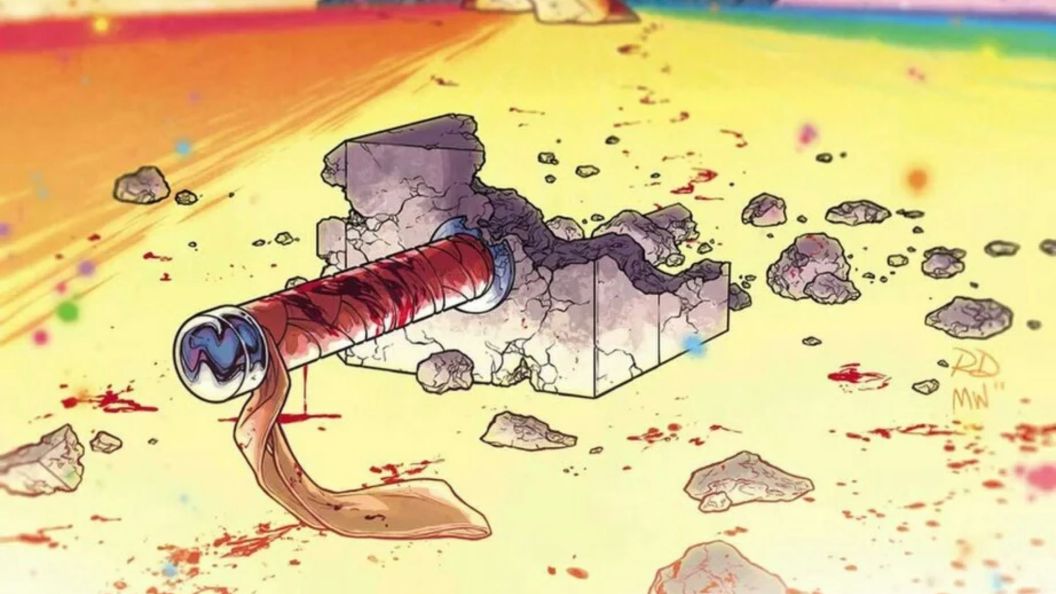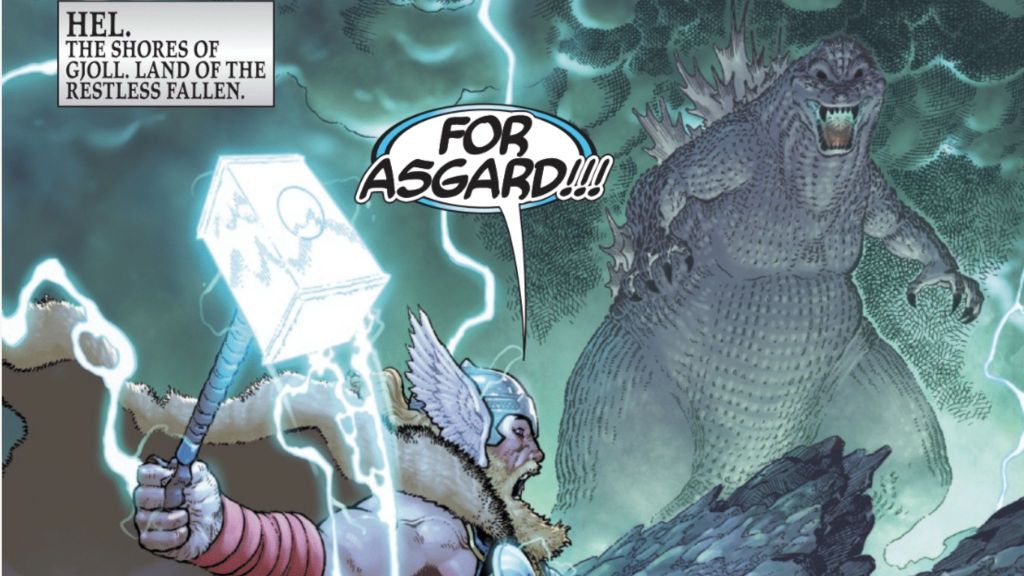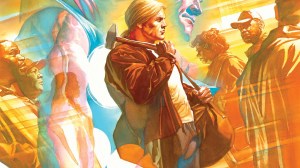
For an allmighty god, Marvel loves to kill off Thor. The hero has suffered through multiple deaths throughout the comics, most notably in the Ragnarok arc at the end of Avengers Disassembled and Fear Itself. In fairness to Marvel, death and resurrection are baked into the character’s DNA, stemming from the myth of Ragnarok. The Norse Gods are destined to die, and with their death, a new world emerges. Yet Marvel has trivialized this grandiose event by making Thor’s death just another Tuesday in the Universe. Marvel enjoys killing Thor so much that it published two comics on July 2nd, 2025, that depict the end of the God of Thunder.
Thor Odinson met his end in issue 25 of Al Ewing’s Immortal Thor run, a death the creator has been teasing throughout his run. Concurrently, the Norse God also met his end in the pages of Jason Aaron’s and Aaron Kuder’s Godzilla vs. Thor one-shot. Even though Thor’s death was something Ewing was building towards and holds its own gravitas, it’s the character’s death in Godzilla vs. Thor that feels more deserving of the character’s godly status. Aaron and Kuder instill Thor’s ultimate fate with such passion that it feels like a true legend, becoming the perfect endpoint for the character and everything he represents.
Thor Dies a Man in Immortal Thor

The inherent contradiction between the title Immortal Thor and the character actually dying is not lost on Ewing. The comic treated the character as a living embodiment of legends, exploring existential concepts like immortality and godhood. Thor’s myth was even used as a way to weaponize against him, with Roxxon and the Enchantress changing Thor’s story with corporate-owned comics to make him a more superficial character. Ultimately, Thor is stabbed in the back by Loki and has a confrontation with his former mortal identity, Donald Blake.
The original Thor origin story had Donald Blake magically transform into Thor when he struck his cane. Eventually, Marvel would separate Blake from Thor, becoming the new God of Lies. Thor is sent to Vidbláinn, an alternate afterlife for the Norse gods. Thor attempts to reconcile with Blake, yet the latter attacks him with the Hellnir, another hammer with godly properties. Blake blinds him, as revenge for being cast away as a “sin.” However, Thor grabbed the Hellnir and unleashed a large energy wave that seemingly turned him into stone. Before turning into stone, Thor recognizes Blake as part of himself, and figures there’s a human soul between them. Blake loses his soul and becomes a serpent-like creature.
Meanwhile, Odinson wakes up as a normal man named Sigurd Jarlson, an obscure secret identity Thor briefly used after separating from Blake. He meets Lukki, a young boy who was created as an illusion by Loki in a previous life. The comic establishes that after Thor had died, the idea of him was also killed. He is replaced in history and people’s memories by Beta Ray Bill. Immortal Thor #25 is an appropriate finale before Ewing relaunches the title as a new Thor comic starring Sigurd. It’s a somber and poetic finale that matches Ewing’s usual style. Nonetheless, it lacks the grandiose that Thor’s other death this week had. Thor should die fighting rather than on his back and accepting a new life as a mortal being. That is what Aaron and Kuder get right with their Godzilla vs. Thor.
Thor Dies a Legend in Godzilla vs. Thor

Whereas Immortal Thor is more thoughtful and reflective, Godzilla vs. Thor is an all-out brawl between the two characters. Writer Jason Aaron treats both as deities in their own right, using the classic trope of unstoppable force meeting an immovable object. Godzilla can’t be stopped, yet Thor refuses to give in, leading to an epic clash among the debris of Asgard. It’s a fight worthy of the heavens, and Aaron imbues the narration with flowery language, hammering home that the battle between God of Thunder and the King of the Monsters is a modern-day myth. Like all the best legends, Aaron doesn’t give a conclusive end to Thor vs. Godzilla. Even in death, both gods will continue fighting in Hel forevermore, cementing the idea that neither will ever back down.
Even though Godzilla vs. Thor ends with the God of Thunder perishing and in the afterlife, he is given far more dignity than he was in Immortal Thor. In Godzilla vs. Thor, the Odinson is given a death that doesn’t end his story and an afterlife he richly deserves. Fighting for all eternity against the most powerful Kaiju known to exist is a legend perfectly tailored to Thor, and far more satisfying than his decision at the end of Immortal Thor. Ewing and Aaron are telling two different stories, and both are successful in a way. Ewing wants to deconstruct the idea of Thor and bring back humanity to a character who is literally a God. Contrastingly, Aaron constructed a tale of two indestructible forces and further emphasized Thor’s godly nature. Ewing wants to explore Thor as a human, whereas Aaron embraces the character as a legend.
The post Marvel Killed Thor Twice (And One Death Is More Epic Than the Other) appeared first on ComicBook.com.


